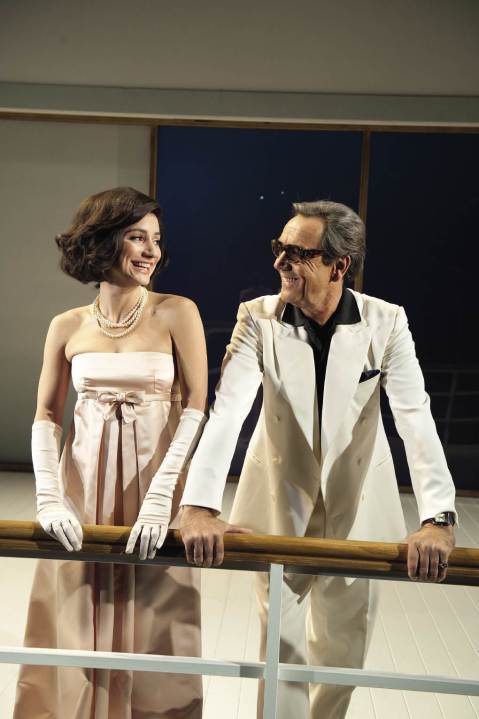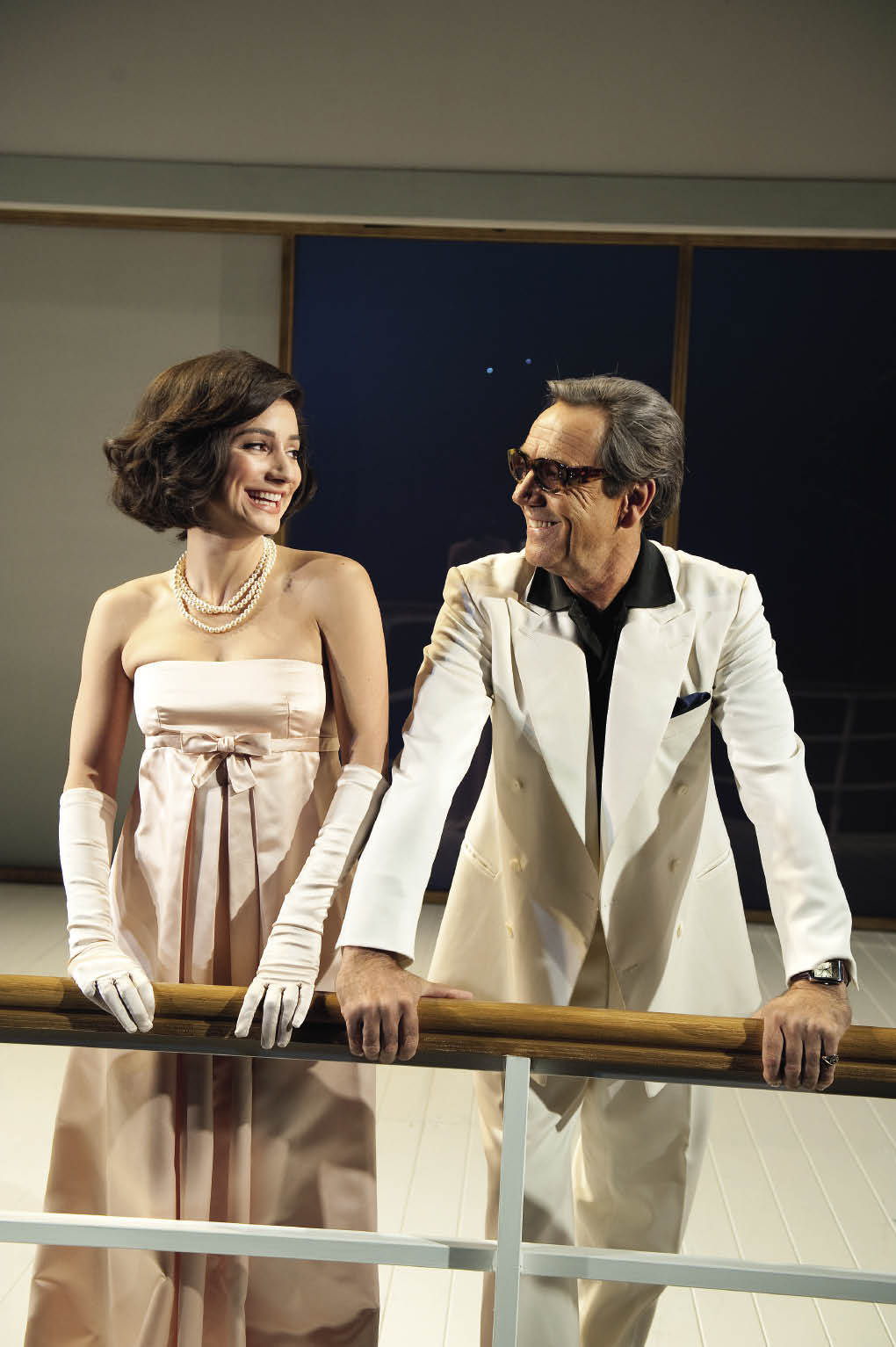Thank God for the critics. All failings can be laid at their door. Robert Lindsay appeared on a telly sofa last week to repudiate the shirtier reviews of Onassis. ‘It’s not a critic play,’ he said. And I wondered if ‘critic’ had changed grammatical species and become an adjective meaning ‘good’.
The show has its moments but the script is devoid of dramatic intelligence. Proper plays open with a dilemma that enlists the audience’s sympathies, unifies the action and creates suspense. Plenty of options were available to playwright Martin Sherman. Would Onassis succeed in replacing Maria Callas with Jackie Kennedy? Would he destroy his son Alexander’s romance with an ageing English divorcee? Would he conspire with the PLO to assassinate Bobby Kennedy? Rather than shaping the drama around one of these gripping plotlines Sherman lobs them all on stage any old how, kicks them around a bit and then boots them off one by one. This undemanding approach creates enormous demands. An array of disjointed effects trundles past us on a conveyor- belt without engaging our sympathies or creating the delicious feeling that our expectations may be overturned at any moment.
Robert Lindsay gets into Onassis’s suit but can’t get under his skin. He dances sideways on to the stage, tilting his hips, swivelling his heels, snapping his fingers and humming some doomed Greek love song about some doomed Greek lover. He’s Bing Crosby, he’s Rick from Casablanca, he’s the bit of rough from Shirley Valentine, he’s the smooth-talking taverna-owner who serves you your ouzo and offers you a cheap deal on scooter-hire. But he’s not Onassis.
The man was a hurricane, not this warm and wafting breeze. We get no sense of his demonic grandeur, his genius for commerce, his addiction to risk, his titanic lust for wealth and power, for magnificent alliances and glamorous brunettes. Physically, he was repulsive, a stunted, bazooka-hootered hobbit who targeted the world’s most desirable woman as a means of striking his ugliness from the record. Lindsay can’t help but play him as a lean and handsome lothario, a charming rake with a fiery temper who beds women, beats them up a bit, dumps them, begs their forgiveness, showers them with gifts and runs off with someone else. It’s a suburban vision of a towering figure. And Lindsay seems to enjoy playing Onassis too much. Or playing at playing him. The sense of private amusement undermines the effect. Even when he’s giving it everything, the chief beneficiary is himself. And his Stelios-inspired EasyWop accent is marred by telltale vowels from Rada.
The best psychological moments belong to Lydia Leonard’s self-knowing Jackie Kennedy, who admits that she’s drawn to faithless monsters ‘whose mouths drip blood because they consume life raw’. When she observes that Onassis has no objection to her ongoing affair with Bobby Kennedy, she says, ‘You don’t want to have me. You want to steal me.’ The show succeeds best when it aims for superficial comedy, but this material cries out for something richer, meaner, darker and more thickly caffeinated.
In The Country Girl, Clifford Odets perfects the trick that eludes Sherman. Frank, a fading Broadway star, is offered one last shot at the big time by an ambitious young producer. Will Frank make it or won’t he? Even if you don’t care, you care. You can’t help it. Your brain is wired to take sides in any contest arranged like this, as a wager or a sporting contest between a man and his frailties. Martin Shaw is on fine form as the star on the skids. Playing a grizzled old drunk with a heart of gold may not be the highest peak in the dramatic fells but he manages it convincingly enough. The shaggy mane, the glowering looks, the small eyes that smoulder with hurt, all these physical details feed into an effective portrait of burnt-out talent. Frank is a complex beast, a nicely calibrated blend of self-pity and self-destructiveness. He lugs his leathery trunk around the stage, like a wasted Saturn, bellowing and sighing and beating his breast, vowing to his beloved wife Georgie that he’s kicked the sauce even as he secretly stashes flasks of brandy-strength cough mixture in his sock-drawer. Jenny Seagrove, the partner of the play’s producer, Bill Kenwright, is admirably steady and becalmed as Georgie, the rock on which her limpet-like husband lodges his calcified sucker.
This is a great play within rather narrow terms. It’s great if you want to provide work for two ageing beauties, each with a loyal public, and each in need of a dramatic promenade where they can showcase their crumbling charms. In absolute terms, it’s only a moderately good play. A curiosity, really. Hopefully the British public will overcome their reservations and give generously to the upkeep of these important national monuments.








Comments